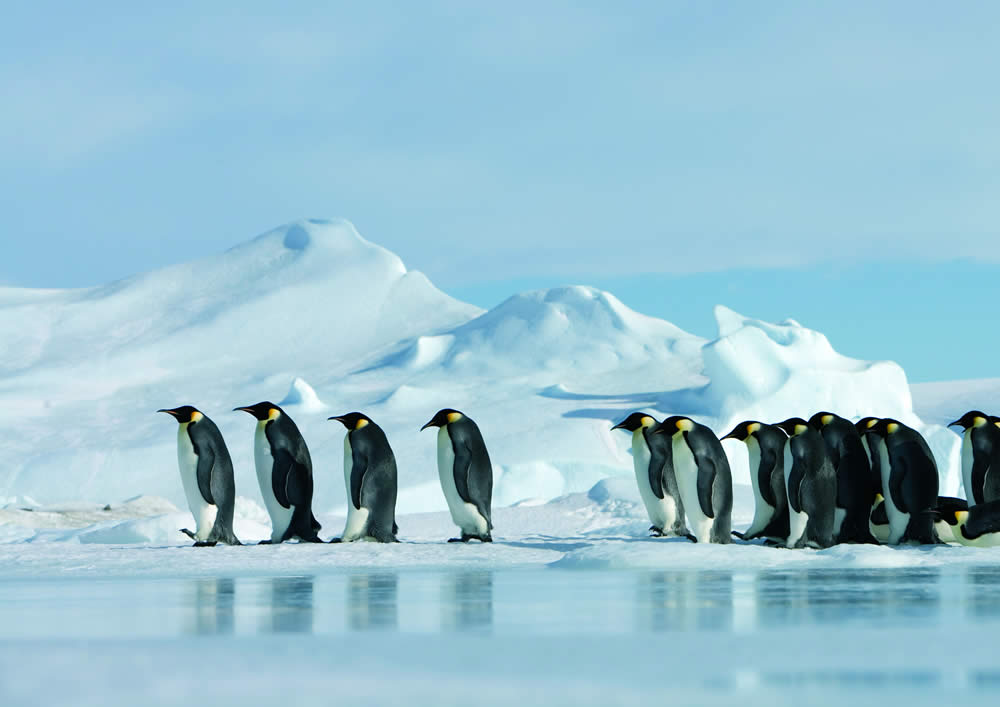Research
by biologists Stephanie Jenouvrier, Hall Caswell, and et al. from the Woods
Hole Oceanographic Institution (WHOI) has made some compelling implications and
trends about the future of emperor penguins based on the rates of melting sea
ice published by the Intergovernmental Panel on Climate Change (IPCC). They
used mathematical models to predict the effects of climate change on emperor
penguins. Some critical findings are
listed below, along with general effects of climate change on emperor penguins:
· Population
size of emperor penguins colonized in the Terre Adelie, Antarctica, is likely
to shrink by anywhere from 80 - 90% by the end of the century, bringing the
numbers from the current 3,000 to only about 400 breeding pairs.
· In
the 1970s, one fluctuation in abundance of sea ice in Terre Adelie led to the
decline of emperor penguin population by about 50%. Knowing this, there is a
major concern in that these biologists have predicted these fluctuations to
occur in more frequent manner over the next 100 years.
· Absence
and early break up of winter sea ice affects their survival rate because the emperor
penguins depend on sea ice for breeding, feeding, and molting. Most breed on
sea ice called fast ice, which attaches to the ice shelves and coastlines, and
does not move in wind or currents. Fish species that are the main food source
for these penguins depend on tiny crustaceans called krill, which thrive on
algae growing underneath sea ice. With the melting of sea ice, comes the
reduction in the availability of prey. Stable sea ice is necessary for emperor
penguins during the molting period because during this period, they cannot survive
for long in the water. All these factors affected by global warming threaten
the survival rates of emperor penguins.
In
order to avoid extinction, emperor penguins are needed to make changes and
adapt to their unfortunate situation caused by global warming. These changes
must include earlier breeding cycle and incubation period. Scientists and
biologists involved in conservation work of emperor penguins hope that these
penguins will adapt to the fast changing climate and conditions. However,
unlike other Antarctic bird species that have shown alterations in their
lifestyles, it is unlikely that emperor penguins will do the same. “They are
long-lived organisms, so they adapt slowly. This is a problem because the
climate is changing very fast”, says Jenouvrier.
The
Antarctic Peninsula, where Terre Adelie live, have experienced the most
pronounced climate change over the last 50 years. In the future, emperor
penguins may have no chance of survival unless they are able to migrate to an
alternative habitat. The Ross Sea, an area where sea ice has actually shown to
increase over the years, might be the best and last resort for these penguins
to avoid extinction.

Effects of Global Warming Taking Place

Effects of Global Warming Taking Place

Sad story.
ReplyDeleteYou really wrote an awaking blog that will aware to the world from the dangers of Global warming.
ReplyDeleteThe data and fact that you have been presented for the better understand the global warming effect is correct and easy to get.
Global Warming Times